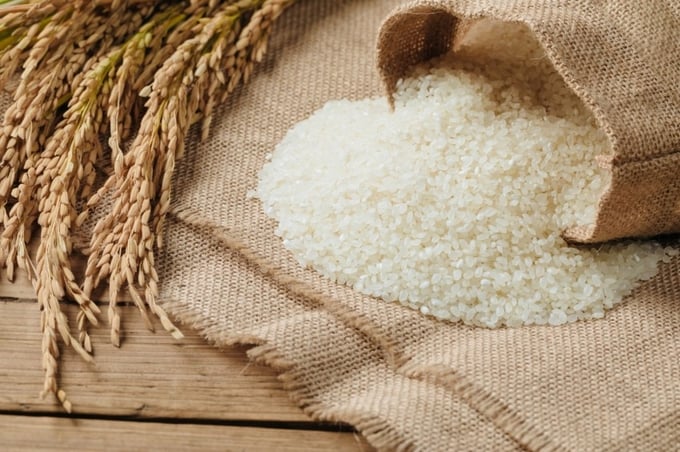June 17, 2025 | 19:04 GMT +7
June 17, 2025 | 19:04 GMT +7
Hotline: 0913.378.918
June 17, 2025 | 19:04 GMT +7
Hotline: 0913.378.918
Certainly it’s shocking. But it’s not cheap journalism. The report’s author is Nobuhiro Suzuki, for 15 years an agriculture ministry bureaucrat; since 2006, a researcher affiliated with Tokyo University of Agriculture.

Only 37 percent of Japan’s food is produced domestically. Photo: iStock/ASKA
72 million. That’s well over half the nation’s shrinking population. Hungry. It beggars belief. It rouses the skeptic in us. Japan is the world’s third largest economy. Its food industry never sleeps. What’s your pleasure? Domestic? Foreign? At home? Out? An endless banquet, expertly prepared, tastefully served? A quick precooked meal snatched between one pressing task and another? A midnight snack? A midday nibble? Restaurants, supermarkets, convenience stores – let’s pause here and consider some numbers. Japan bristles with 50,000-plus convenience stores, nearly 6000 supermarkets, 1.4 million or so restaurants. Restaurants – what city in the world can match Tokyo’s 137,000? Not Paris (38,000); nor New York (27,000), nor Shanghai (60,000).
Hungry. Japan. Is it possible? It is. Only 37 percent of the nation’s food is produced domestically. The rest is imported. That’s fine when the supply chain holds – when exporters export, ships sail, planes fly, currencies balance. Most of the time they do. Now is not “most of the time.” It may never be again. Now – everything seems to have gone wrong at once, and Suzuki, writing in Josei Seven, frets that few are paying sufficient attention.
Hunger, of course, is acknowledged, spreading as poverty does – but limited, so the feeling goes, to the poor, their numbers growing as the population ages and the economy wanes. But what Suzuki foresees is beyond that – not hungry individuals but mass famine.
The 21st century as it proceeds mocks the optimism of its dawning. Problems existed only to be solved; technology would solve them; democracy would spread, war cease, globalism trump nationalism, people and goods move freely across fading national borders, poverty ebb, prosperity flow, wax, bloom, shine – lighting up a shining new era for all humanity.
The bubble burst. Our buoyancy collapsed. Global warming grew menacing, democracy weak, war intractable, nationalism resurgent. Had that been the worst of it, the rising challenges might still have been met. They might yet be, but the combined assaults of the Covid pandemic and Russia’s invasion of Ukraine have us all reeling – Japan, among developed nations the most dependent on food and energy imports, perhaps especially so. Its population declines, its yen sags. These are the outward symptoms, but Suzuki hints of an inner one, still more intractable: Japan’s inability to change.
Its political system is frozen. The overpowering Liberal-Democratic Party has governed all but uninterruptedly since its founding in 1955. It is taken for granted, the opposition parties all but resigned to marginal status. Voter frustration rises to no purpose, to no effect, with no outlet. It seethes impotently and the system lurches on. Urgent issues go unaddressed. Other nations broaden their sexual orientation, acknowledge diversity, foster gender equality, reassess capital punishment, grant official approval to lifestyles and moral attitudes once despised if not forbidden. Not Japan. The demographic crisis now pressing was previsible in outline 40 years ago. No measures were taken. The food crisis is previsible now, Suzuki and other experts warn. The warnings go unheeded.
Prime Minister Fumio Kishida, opening a Diet session in January 2022, stressed “guaranteed economic security” but made no mention, Suzuki complains, of food security. Are his and others’ fears of mass hunger stalking the land exaggerated? True: predictions of disaster outnumber disasters. Can that be the last word on the subject?
Suzuki reminds us, meanwhile, of these facts to contemplate: Japan’s import of corn from China has soared 10-fold sine 2016, with China more truculent now than then and more inclined, seemingly, to use food as a weapon; Russia and the Ukraine together exported – before war snarled the traffic – one-third of the world’s wheat; India, another major wheat exporter, has cut back, keeping its supply at home for domestic consumption; in the struggle for shrinking food supply on the world market, Japan, its domestic market contracting, loses out as exporters and shippers bypass it in favor of China and its vast appetites; governments the world over have taken measures to support agriculture in the three years of the Covid crisis, the U.S. to the tune of the equivalent of 3.5 trillion yen; Japan, Suzuki says, by stark contrast trims its agriculture budget in favor of increased defense spending.
Plus – this: “Japan,” writes Suzuki, “is the only advanced country in which real wages have declined steadily since 2020.”
It’s a grim picture.
(Japantoday)

(VAN) Extensive licensing requirements raise concerns about intellectual property theft.

(VAN) As of Friday, a salmonella outbreak linked to a California egg producer had sickened at least 79 people. Of the infected people, 21 hospitalizations were reported, U.S. health officials said.

(VAN) With the war ongoing, many Ukrainian farmers and rural farming families face limited access to their land due to mines and lack the financial resources to purchase needed agricultural inputs.

(VAN) Vikas Rambal has quietly built a $5 billion business empire in manufacturing, property and solar, and catapulted onto the Rich List.

(VAN) Available cropland now at less than five percent, according to latest geospatial assessment from FAO and UNOSAT.

(VAN) Alt Carbon has raised $12 million in a seed round as it plans to scale its carbon dioxide removal work in the South Asian nation.

(VAN) Attempts to bring down the price of the Japanese staple have had little effect amid a cost-of-living crisis.